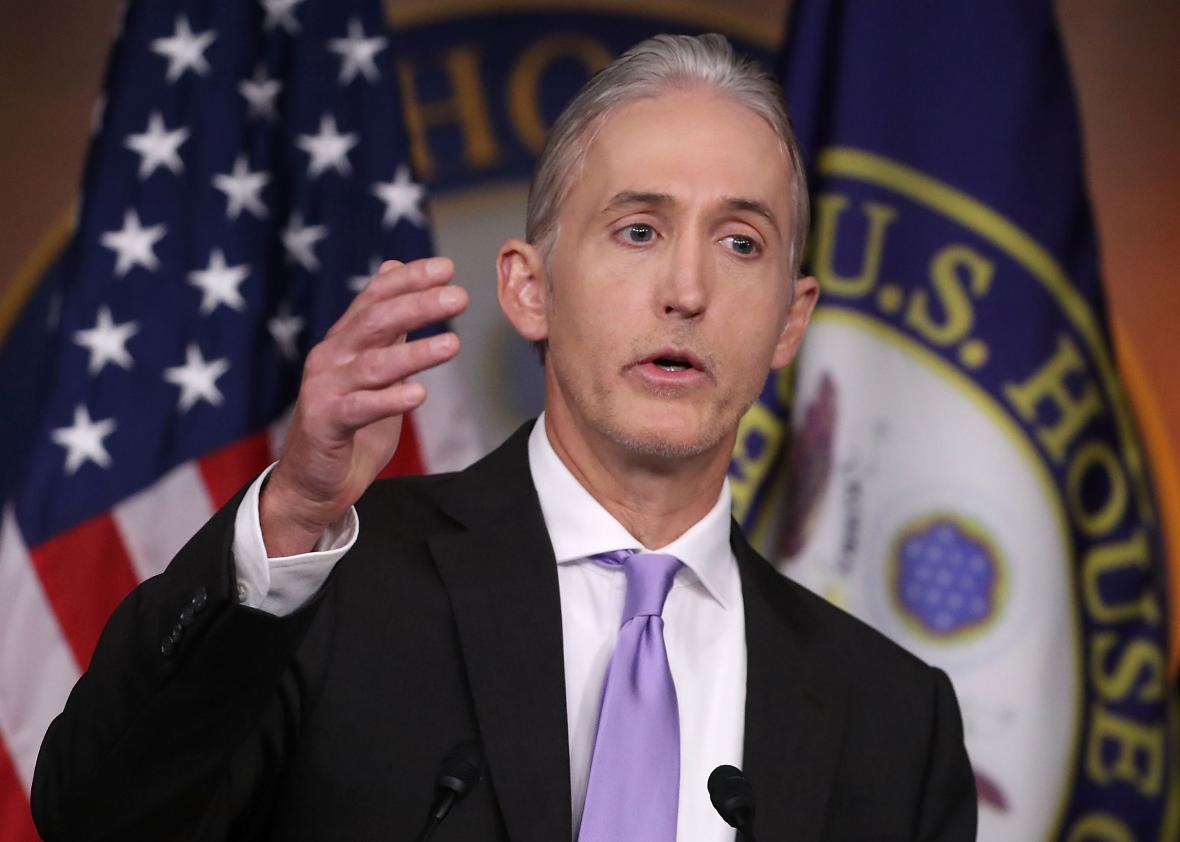Shortly after being tapped to lead the Republican-created House Benghazi committee more than two years ago, Rep. Trey Gowdy proudly declared: “I have no friends to reward and no foes to punish. We’re going to go wherever the facts take us.” Twenty-six months and an estimated $7 million later, those facts don’t appear to have taken his panel to a substantially different place than where the previous eight federal investigations ended up.
On Tuesday, Gowdy’s panel unveiled its long-awaited final report on the 2012 attacks on the U.S. diplomatic outpost in Libya, during which ambassador Chris Stevens and three other Americans were killed. And with its release, an investigation that lasted longer than the congressional probe into 9/11 ended not with a smoking gun, but with a plea.
“Now, I simply ask the American people to read this report for themselves, look at the evidence we have collected, and reach their own conclusions,” Gowdy said in a written statement that accompanied the roughly 800 page report. “You can read this report in less time than our fellow citizens were taking fire and fighting for their lives on the rooftops and in the streets of Benghazi.” In effect, Gowdy, a former federal prosecutor, declined to give a closing argument, which was only further evidence that his case was never all that strong to begin with.
In the nearly four years since the attack, Republicans and their conservative allies have lobbed a slew of Benghazi-related accusations at President Obama and Hillary Clinton, some wildly off base (rumors of a so-called “stand down”) and others more legitimate (suggestions the State Department should have done more to secure the U.S. mission in the first place). The underlying accusation, though, was always that the president and his then-secretary of state were playing politics with American lives. If that was Gowdy’s conclusion, he was unwilling to say it Tuesday. “I think the American people ought to look at it,” the South Carolina Republican said when asked at a morning press conference whether his work suggests Clinton bore responsibility for what happened. “What conclusions they draw after reading it, is up to them.”
The politically charged report includes new details about how the attack unfolded, but offers no major revelations about the incident or the U.S. response to it. In short, Gowdy and his fellow Republicans confirmed what we already knew: There were plenty of failures within the State Department and U.S. military, but no evidence of actual wrongdoing or professional misconduct by Hillary Clinton or any other Obama administration members. (The State Department’s own internal review long ago blamed “systemic” leadership failures within the agency’s management for what it said was the “grossly” inadequate security at the mission in Benghazi.)
Unlike a typical congressional investigation, the report includes no specific conclusions. It does, however, include a section titled “New Facts,” which lists 21 bullet points (some of which weren’t all that new). The most alarming tidbit is probably this one:
Despite President Obama and Secretary of Defense Leon Panetta’s clear orders to deploy military assets, nothing was sent to Benghazi, and nothing was en route to Libya at the time the last two Americans were killed almost 8 hours after the attacks began.
That, obviously, is not good! When the commander in chief gives a clear order, you expect the military to hop to. Similarly, additional details about internal discussions within the administration that, in the GOP’s telling, sputtered along with too much dithering and attention to political messaging are hardly reassuring. But Gowdy’s investigation ultimately does not refute the current consensus that American forces stationed in Europe could not have reached Benghazi in time to rescue Stevens and the other Americans even if they would have been dispatched immediately. There was no “stand down” order from Obama, Clinton, or any other top official—something that remains a popular conspiracy theory on conservative message boards and talk radio even after being debunked.
“I’m not going to make a reckless allegation that [they] could have been saved,” Gowdy said when asked about whether a faster response time would have made the difference.
So was this whole thing a complete waste? Not exactly. It very well may have been a partisan witch hunt as Clinton and her defenders claim—and as comments made by leading Republicans themselves suggest—but it was only via the committee’s digging that the country discovered that Clinton used a private email server to do official public business during her time as secretary of state. Whether that accidental and tangential discovery was worth the resources Gowdy devoted to his investigation remains open for debate—but it’s probably the only piece of lasting impact to come out of this whole thing.
